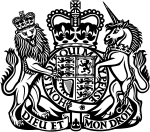
}} Sir Hardress Waller, c. 1604 to – 1666, was born in Kent and settled in Ireland during the 1630s. A first cousin of Parliamentarian general William Waller, he fought for Parliament in the Wars of the Three Kingdoms, becoming a leading member of the radical element within the New Model Army. In 1649, he signed the death warrant for the Execution of Charles I, and after the Stuart Restoration in 1660 was condemned to death as a regicide.

The Irish Confederate Wars, also called the Eleven Years' War, took place in Ireland between 1641 and 1653. It was the Irish theatre of the Wars of the Three Kingdoms, a series of civil wars in the kingdoms of Ireland, England and Scotland – all ruled by Charles I. The conflict had political, religious and ethnic aspects and was fought over governance, land ownership, religious freedom and religious discrimination. The main issues were whether Irish Catholics or British Protestants held most political power and owned most of the land, and whether Ireland would be a self-governing kingdom under Charles I or subordinate to the parliament in England. It was the most destructive conflict in Irish history and caused 200,000–600,000 deaths from fighting as well as war-related famine and disease.

Sir John Gell, 1st Baronet was an English landowner from Derbyshire, who acted as local Parliamentarian commander for most of the First English Civil War before resigning in May 1646. He was notorious for parading the body of his Royalist opponent through Derby after the Battle of Hopton Heath in March 1643.

John Goodwin (1594–1665) was an English preacher, theologian and prolific author of significant books.

Henri Albert de La Grange d'Arquien, Marquis of Arquien was born in Calais, France, the son of Antoine de La Grange d'Arquien, governor of Calais, and Anne d'Ancienville. His surname is also listed as Lagrange.

Nicholas Lockyer (1611–1685) was an English clergyman and Independent minister, a close supporter of Oliver Cromwell and Provost of Eton College, and later an ejected minister and nonconformist.
John Clarke, also known as John Clark, John Clerk, and John Clerke, was an English politician and Justice of the Peace who sat in the House of Commons from 1653 through 1660, and was a colonel in the Parliamentary army between 1651 and 1659.

John Fowke was an English merchant and politician. He served as a Sheriff of London for 1644 and Lord Mayor of London for 1652.

John St Aubyn (1613–1684) was an English politician who sat in the House of Commons of England in 1640. He served as a colonel in the parliamentary army in the English Civil War.

Thomas Birch, c. 5 June 1608 to 5 August 1678, was an English landowner, soldier and radical Puritan who fought for Parliament in the Wars of the Three Kingdoms, and sat in the House of Commons at various times between 1649 and 1658.
Henry Mildmay was an English politician who sat in the House of Commons at various times between 1654 and 1692. He fought in the Parliamentary army in the English Civil War.
Humphrey Mackworth was an English lawyer, judge, and politician of Shropshire landed gentry origins who rose to prominence in the Midlands, the Welsh Marches and Wales during the English Civil War. He was the Parliamentarian military governor of Shrewsbury in the later phases of the war and under The Protectorate. He occupied several important legal and judicial posts in Chester and North Wales, presiding over the major trials that followed the Charles Stuart's invasion in 1651. In the last year of his life, he attained national prominence as a member of Oliver Cromwell's Council and as a Member of the House of Commons for Shropshire in the First Protectorate Parliament.
This is a timeline of events leading up to, culminating in, and resulting from the Wars of the Three Kingdoms.









